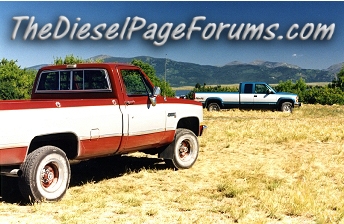
Since we are on the subject, what is the highest recommend temperature for synthetic oil and dino oil in an engine?
1993 K3500 - Peninsular 18:1 engine, marine injectors, high capacity cooling, AL Core Radiator, 3" DP and 4" exhaust, ISSPRO Gauges, Girdle, AMSOIL Dual Oil Filter System, 1997 Air Filter(trashed the K&N), 395K on Body, 165k on engine.
1997 GMC Savana - 6.5 TD
1966 CJ5 - V6 Gas - highly modified
1967 Jeepster - Stock
1986 Jeep CJ7 - Stock
1993 Grand Cherokee - 6.2 diesel
2007 Grand Cherokee - 3.0 diesel







 Reply With Quote
Reply With Quote





